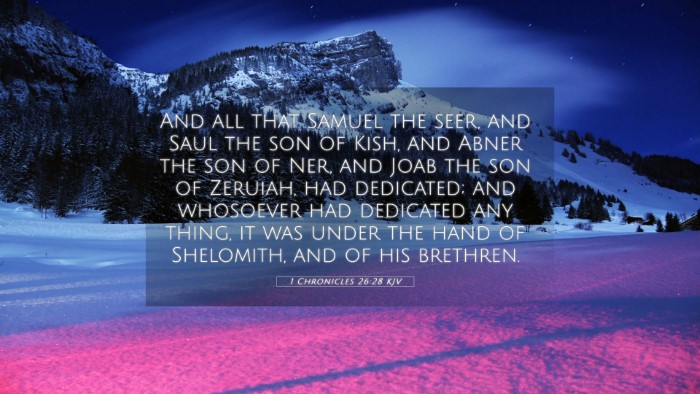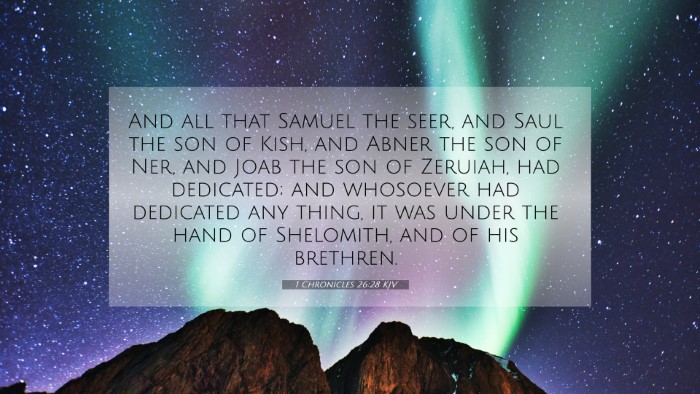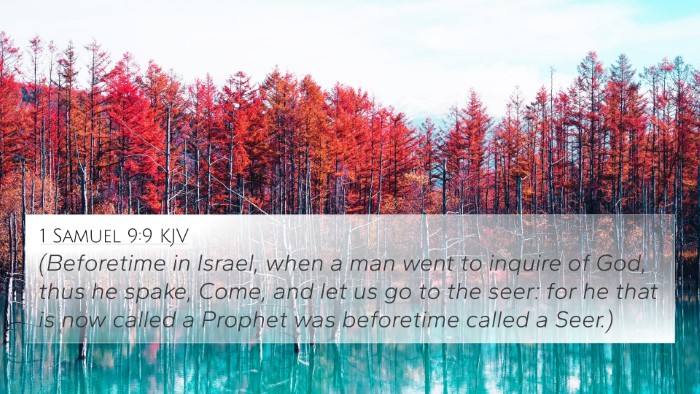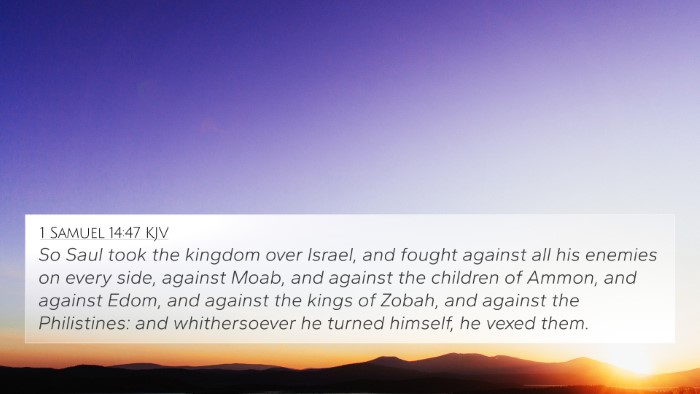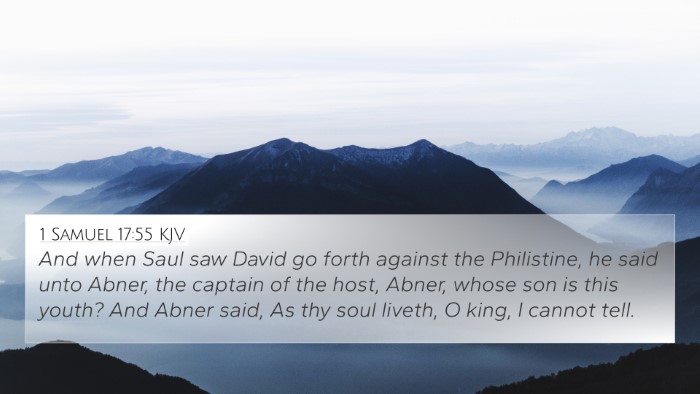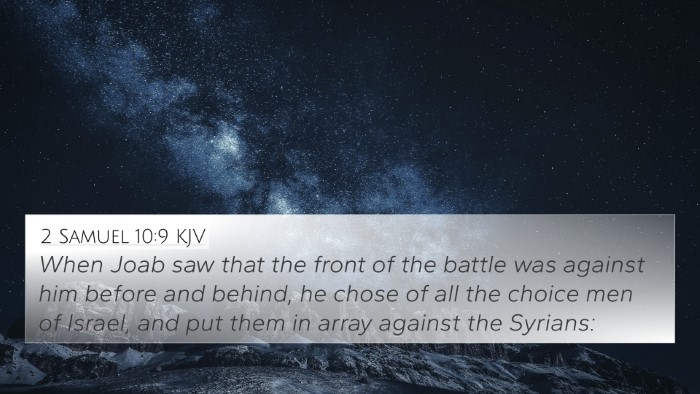Understanding 1 Chronicles 26:28
Verse: 1 Chronicles 26:28 - "And all that Samuel the seer had appointed, and of the matters of the king, and of the king’s sons."
Overview
This verse highlights the significant roles played by the prophet Samuel and the king's sons in overseeing the temple's offerings and responsibilities. The connections drawn in this passage underscore themes of leadership, divine appointment, and the continuity of worship practices in Israel.
Meaning and Commentary Insights
Matthew Henry's Commentary: Henry emphasizes the importance of Samuel's appointment and the serious nature of his prophetic calling. He sees this verse connecting the past insights of Samuel with the ongoing responsibilities of God's people. Samuel's foresight and governance provide a divine framework for leadership practices in temple service.
Adam Clarke's Commentary: Clarke highlights that the reference to "the matters of the king" signifies the intertwining of religious and royal duties. This merging of spiritual oversight with secular authority illustrates the holistic approach to governance in ancient Israel, where the king's actions were often guided by prophetic insight.
Albert Barnes' Commentary: Barnes points out the organizational structure in Israel, emphasizing that Samuel's previous actions set a precedent for the management of temple affairs. He notes how the involvement of the king's sons reflects a generational continuity in leadership roles, instilling future leaders with the responsibility to uphold spiritual and national integrity.
Bible Verse Cross-References
- 1 Samuel 10:25: Discusses Samuel's warnings and instructions to the people regarding kingship.
- 1 Chronicles 23:1: David's establishment of a royal edict about temple service, emphasizing the interplay between monarchy and religious service.
- 2 Samuel 5:12: David recognizing that the Lord had established him as king, linking divine authority with his leadership.
- 1 Samuel 12:1-5: Samuel's farewell address shows his concern for righteous governance, highlighting integrity in leadership.
- Psalm 78:70-72: Reflects on how God chose David and appointed him to shepherd His people, emphasizing God's choice in leadership.
- Proverbs 16:10: Explores the importance of decisions by rulers, paralleling how monarchy intertwines with divine insight.
- Lamentations 2:9: Describes a time when the prophetic voice was scarce, emphasizing the importance of Samuel’s role.
Connections between Bible Verses
This verse connects deeply to the themes of prophetic authority, godly leadership, and the responsibilities required of religious directors. Samuel's influence and the royal lineage are critically examined alongside the growing need for spiritual and civic integrity within the nation.
Comparative Bible Verse Analysis
1 Chronicles 26:28 serves to illustrate a template for understanding how Old Testament scriptures set frameworks that inform New Testament revelations about leadership and stewardship. For instance, the roles of divine appointment resonate with the leadership qualities prescribed to church elders in the New Testament (1 Timothy 3:1-7).
Thematic Bible Verse Connections
Key themes within this verse, such as divine governance and stewardship, recur throughout the scriptures, reinforcing the continuity of divine design across both Testaments. The examination of how these themes appear in various Biblical texts can facilitate deeper theological understanding.
Tools for Bible Cross-Referencing
To fully appreciate 1 Chronicles 26:28 and its implications, utilizing tools for Bible cross-referencing can enhance study. Resources such as concordances and thematic guides are crucial for uncovering relationships and deeper meanings.
Conclusion
In conclusion, 1 Chronicles 26:28 is not merely a statement about past events but a rich text that invites contemporary readers to explore the foundations of leadership, divine calling, and the continuity of spiritual responsibilities. By engaging with cross-references and drawing upon commentary insights, readers can grasp a more profound understanding of the connections between Biblical texts.
As users explore this verse and its commentary insights, they can discover how to effectively use cross-references for thematic studies, sermon preparation, and a comprehensive understanding of the Biblical narrative.

